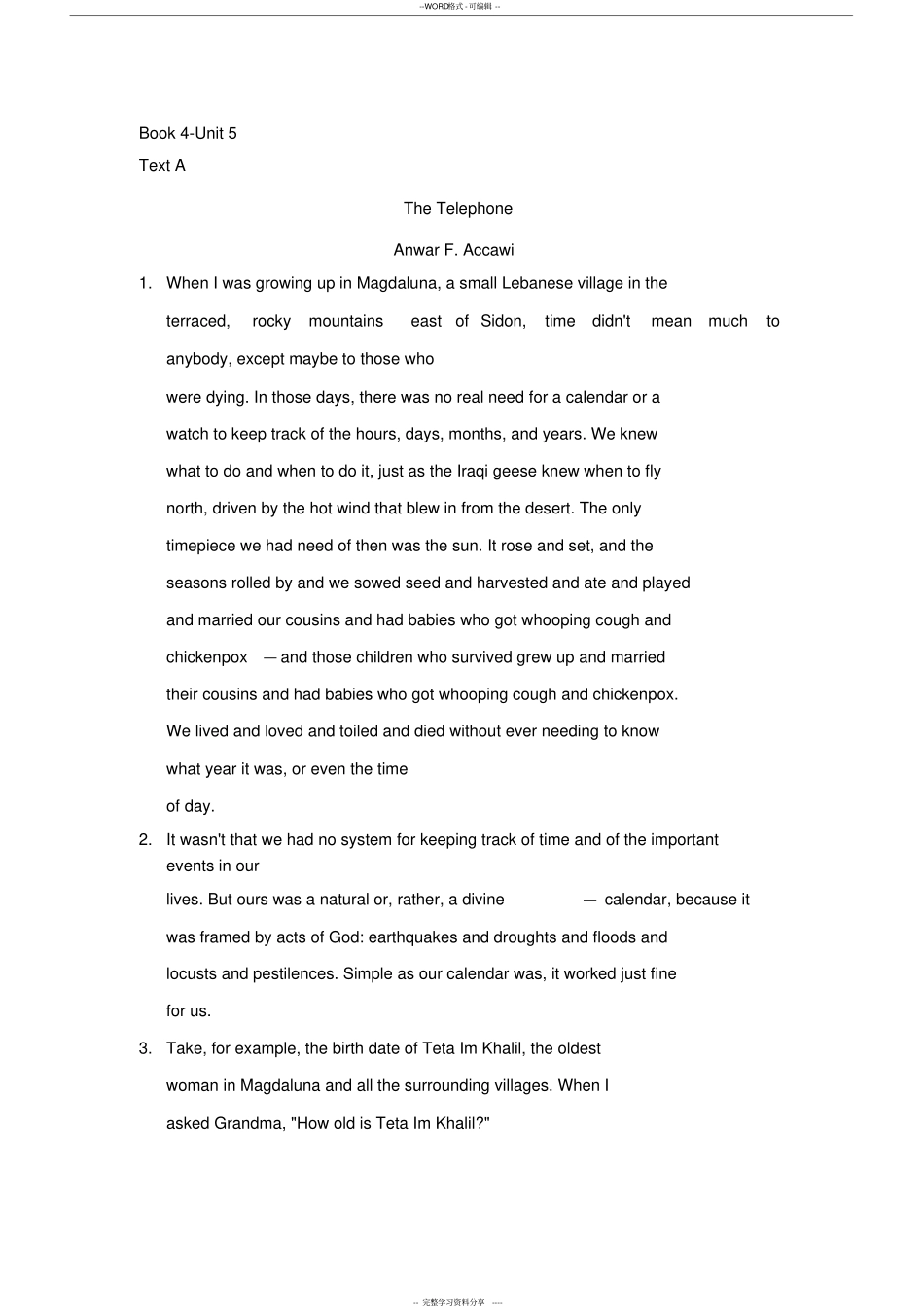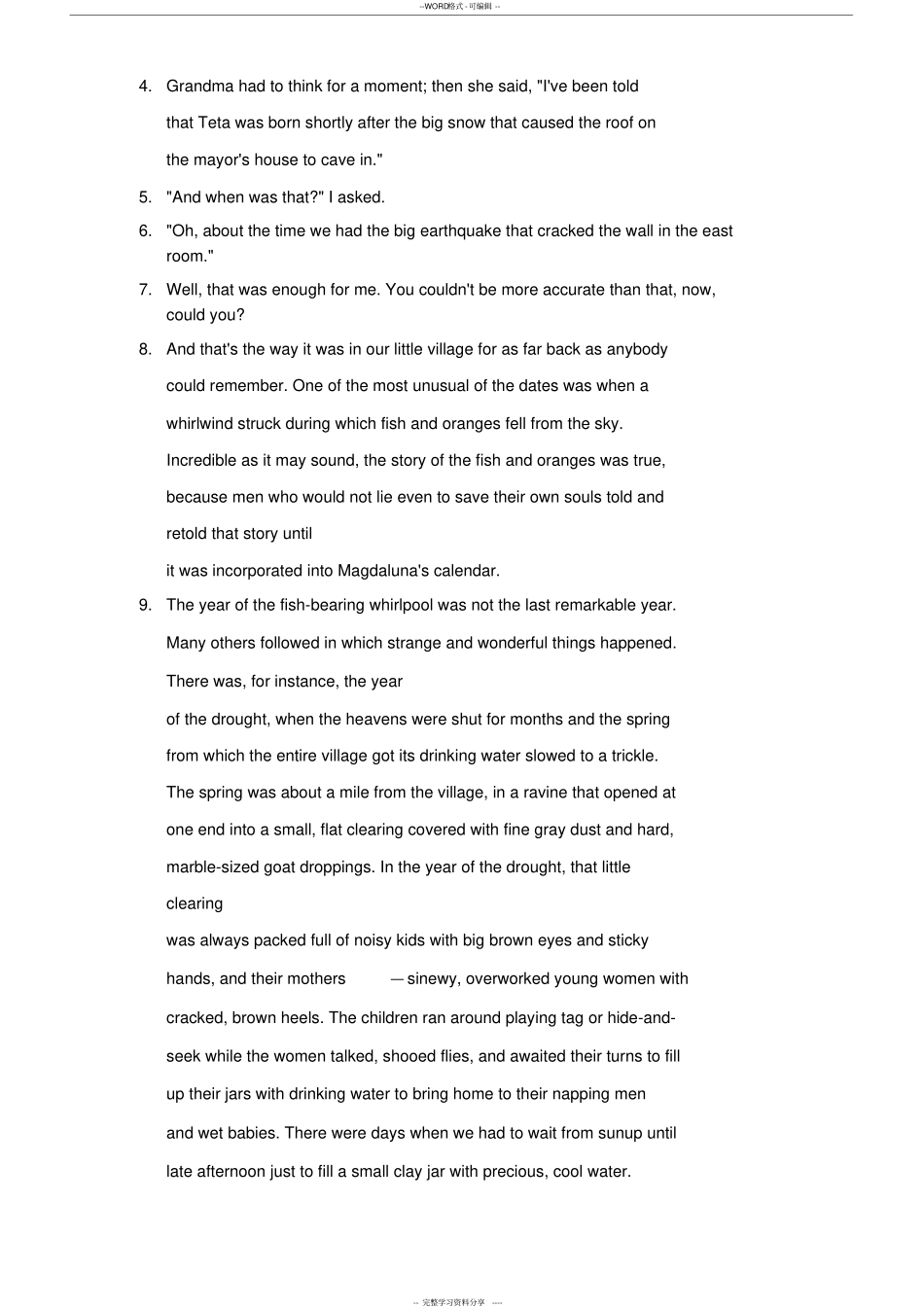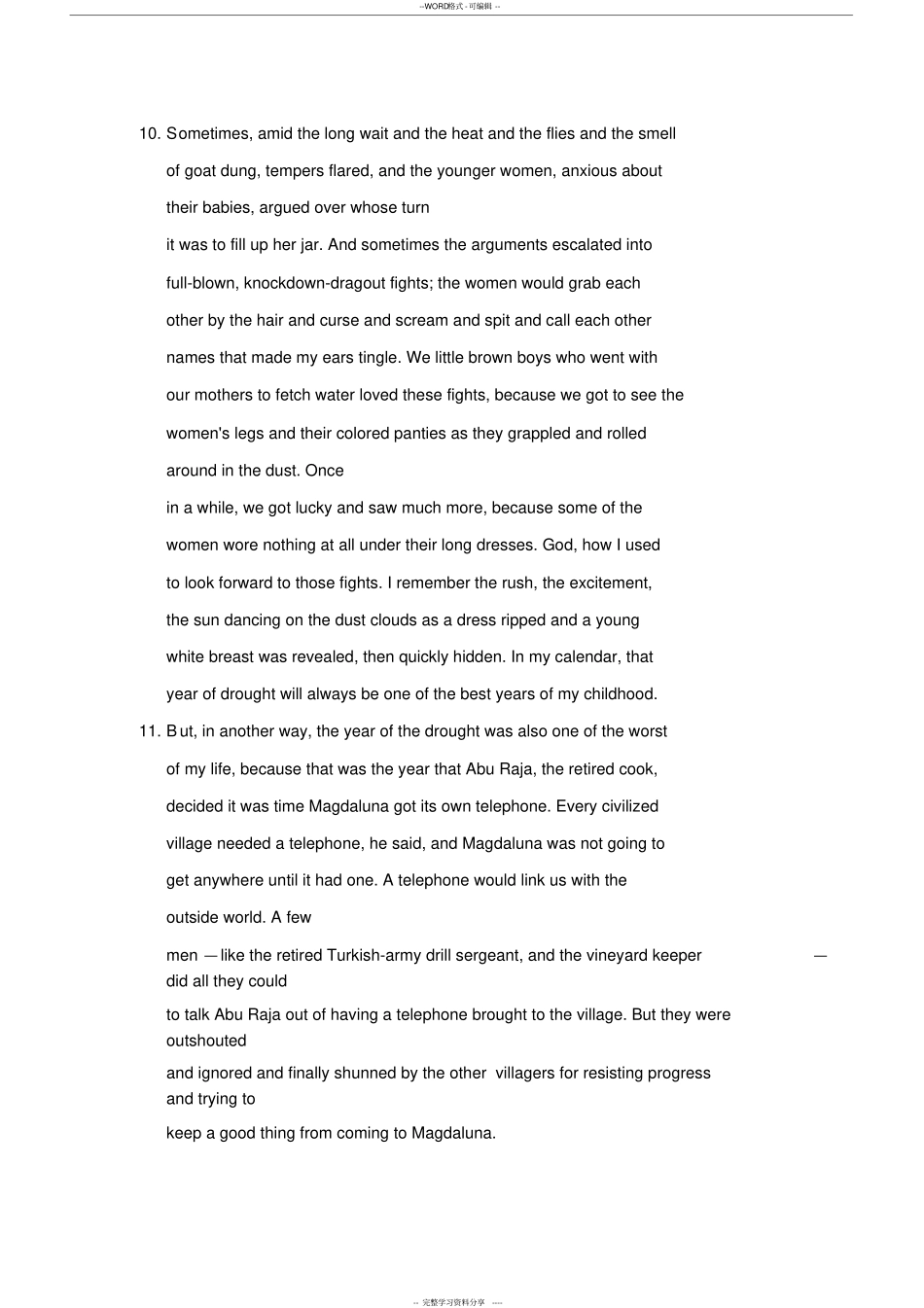--WORD格式 -可编辑 -- -- 完整学习资料分享---- Book 4-Unit 5 Text A The Telephone Anwar F. Accawi 1.When I was growing up in Magdaluna, a small Lebanese village in the terraced, rocky mountains east of Sidon, time didn't mean much to anybody, except maybe to those who were dying. In those days, there was no real need for a calendar or a watch to keep track of the hours, days, months, and years. We knew what to do and when to do it, just as the Iraqi geese knew when to fly north, driven by the hot wind that blew in from the desert. The only timepiece we had need of then was the sun. It rose and set, and the seasons rolled by and we sowed seed and harvested and ate and played and married our cousins and had babies who got whooping cough and chickenpox— and those children who survived grew up and married their cousins and had babies who got whooping cough and chickenpox. We lived and loved and toiled and died without ever needing to know what year it was, or even the time of day. 2.It wasn't that we had no system for keeping track of time and of the important events in our lives. But ours was a natural or, rather, a divine — calendar, because it was framed by acts of God: earthquakes and droughts and floods and locusts and pestilences. Simple as our calendar was, it worked just fine for us. 3.Take, for example, the birth date of Teta Im Khalil, the oldest woman in Magdaluna and all the surrounding villages. When I asked Grandma, "How old is Teta Im Khalil?" --WORD格式 -可编辑 -- -- 完整学习资料分享---- 4.Grandma had to think for a moment; then she said, "I've been told that Teta was born shortly after the big snow that caused the roof on the mayor's house to...


